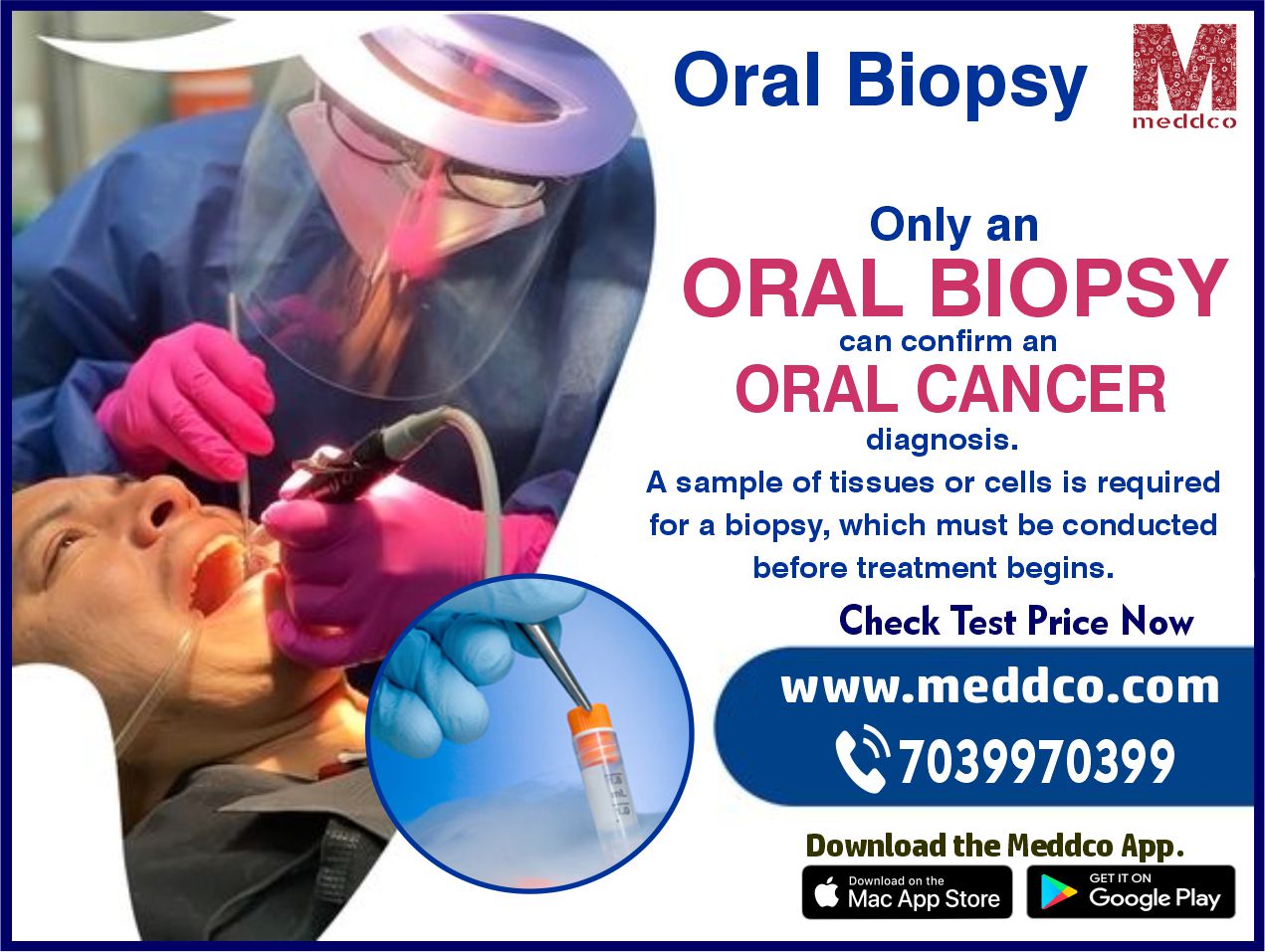

: Admin : 2022-06-13
What is an Oral biopsy?
In Oral biopsy is a surgical procedure in which a small tissue sample removes from any abnormality or suspicion section for microscopic examination and further detects the presence or absence of any cancerous cells. Intra-oral biopsies perform to make sure a proper diagnosis.
Oral biopsies used to diagnose situations consisting of oral cancer:
Why need of oral biopsy?
Dentists recommended oral biopsy in such cases:
Types of biopsy
Aspiration biopsy: In this biopsy, a tiny sample of cells from a lesion is taken by a needle or syringe. If the surgeon cannot drain any fluid or air, it means the lesion is solid.
Punch biopsy: This biopsy is done with a punch tool for incisional and excisional purposes. This type of Oral Biopsy is best suited for diagnosing oral manifestations of mucocutaneous and painful situations of the oral cavity, which includes lichen planus.
Bone biopsy: This biopsy is used to diagnose abnormal conditions affecting your jaw bone. The dental surgeon will take a small sample of bone after making a small cut in your gum and then stitch the cut together.
Brush Biopsy: In this kind of Oral Biopsy, firm pressure with a round brush is implemented and rotated give to ten times, causing light abrasion. The brush's cellular material is transferred to a glass slide, preserved, and dried.
Is oral biopsy painful?
The oral biopsy is painless. A patient only feels a sharp pinch or pinprick because of the needle; the surgeon used to take a biopsy or inject local anesthetics. After the biopsy patient may experience mild pain for 4 - 6 hours or when the local anesthetic stop. Oral painkillers can treat this pain.
Some patients may experience swallowing after the biopsy procedure within 2 or 3 days, which can be lessened by using ice on the biopsy site for 2-3 days. It is normal to have some
oozing, blood-tinted Sliva overnight or for the next day. If you feel it necessary, take simple painkillers to help with your pain.
Will there be bleeding after the biopsy?
There'll be a little bleeding at the time of biopsy that usually stops very quickly, and there will be no further problem if your wound is stitched correctly. Sometimes biopsy site starts to
bleed again when patients reach home, which can be stopped through making pressure over the place for 10 minutes with a handkerchief or swab. If bleeding doesn't stop, contact your surgeon as soon as possible.
oral health oral biopsy mouth cancer
No Comments